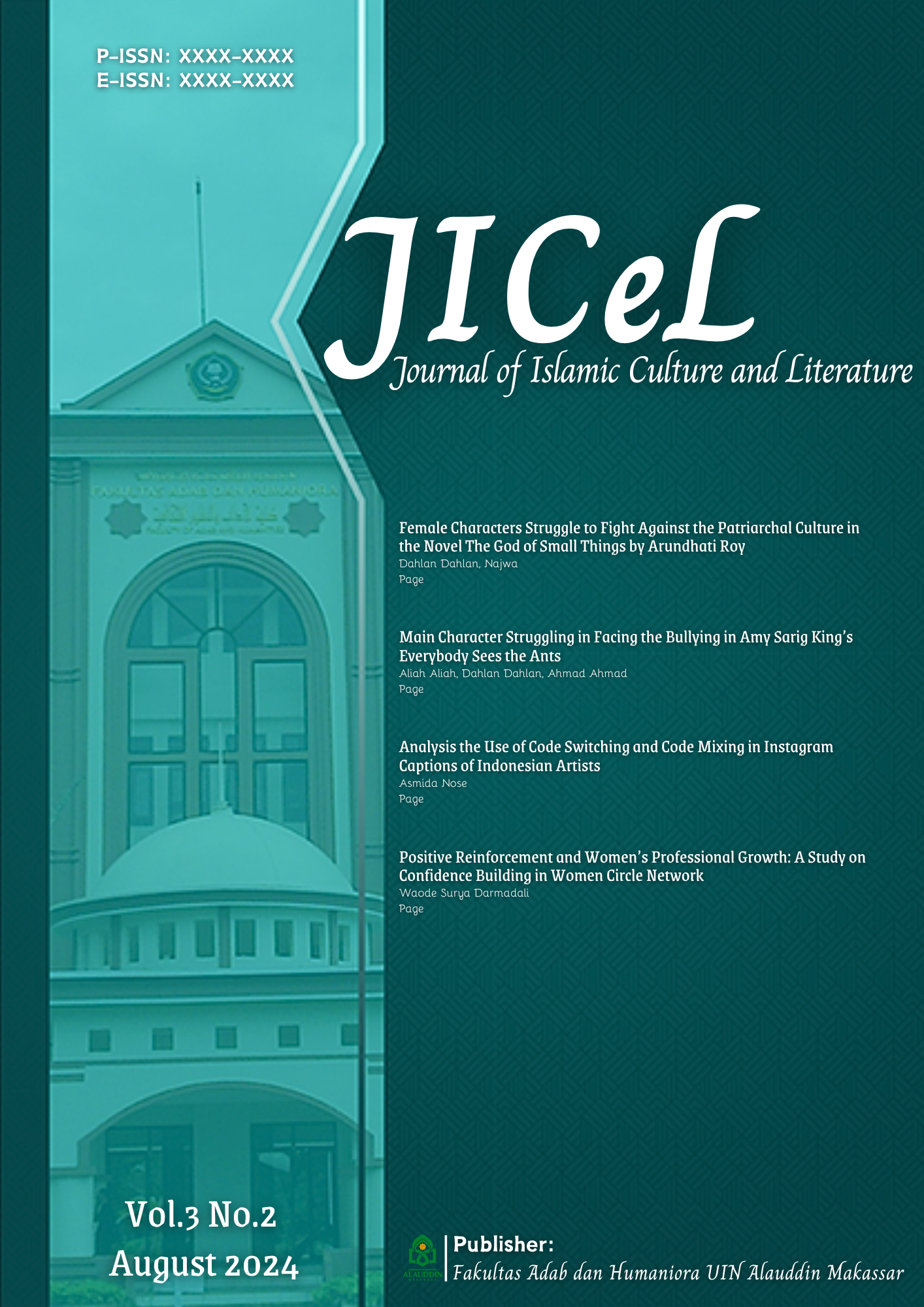FEMALE CHARACTERS STRUGGLE TO FIGHT AGAINST THE PATRIARCHAL CULTURE IN THE NOVEL THE GOD OF SMALL THINGS BY ARUNDHATI ROY
Abstract
This study aims to determine the forms and impacts of patriarchal culture experienced by female characters in the novel The God of Small Things by Arundhati Roy. This study uses a qualitative method with a feminist approach by using Simone De Beauvoir's Existential Feminism theory. The researcher collected data from the novel The God of Small Things using a note-taking instrument. The results of the analysis show that there are three forms of resistance to patriarchal culture in the novel The God of Small Things, namely women able to work, women are able to become intellectuals, and women can refuse service to their bodies. This study also found the impact of patriarchal culture on female characters in the novel, namely: subordination, discrimination, violence against women, sexual harassment, and trafficking of women. Therefore, the researcher found that Arundhati Roy's novel presented female characters who live under a patriarchal discourse that subjugates them to multiple oppressions of both race and gender-based discrimination.
Authors who publish with this journal agree to the following terms:
1) Authors retain copyright and grant the journal right of first publication with the work simultaneously licensed under a Creative Commons Attribution License that allows others to share the work with an acknowledgement of the work's authorship and initial publication in this journal.
2) Authors are able to enter into separate, additional contractual arrangements for the non-exclusive distribution of the journal's published version of the work (e.g., post it to an institutional repository or publish it in a book), with an acknowledgement of its initial publication in this journal.
3)Authors are permitted and encouraged to post their work online (e.g., in institutional repositories or on their website) prior to and during the submission process, as it can lead to productive exchanges, as well as earlier and greater citation of published work (See The Effect of Open Access).


